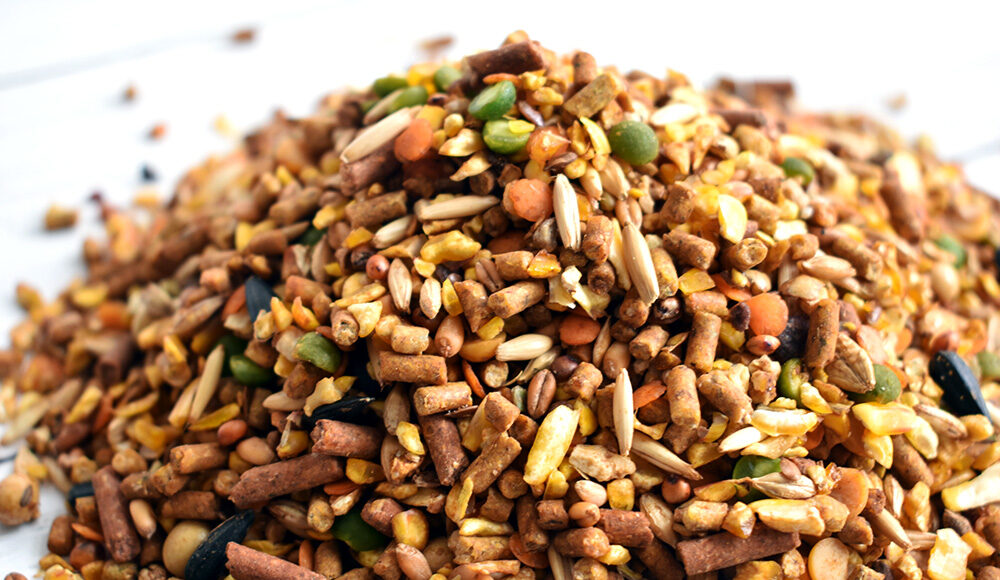When it comes to raising chickens, one of the most important tasks is ensuring that they have access to fresh, nutritious feed at all times. To achieve this, knowing how to store chicken feed properly is crucial. Many poultry enthusiasts may underestimate the significance of proper storage, leading to wasted feed, increased costs, and potential health risks for their flock. In this comprehensive guide, we will delve deep into the best practices for storing chicken feed, ensuring its freshness and nutritional value while minimizing losses.

Why Proper Chicken Feed Storage is Important
The first step in understanding how to store chicken feed is recognizing its importance. Chicken feed is prone to spoilage, pest infestation, and nutrient loss if not stored correctly. This can lead to a host of problems, including:
- Health issues for your chickens due to moldy or contaminated feed.
- Increased costs from having to discard spoiled feed.
- Reduced egg production and quality.

Selecting the Right Storage Containers
The type of storage container you use plays a pivotal role in maintaining the feed’s quality. Here are some recommended options:
Metal Containers
Metal containers are excellent for storing chicken feed because they are durable and pest-resistant. Ensure the container has a tight-fitting lid to keep out moisture and pests.
Plastic Containers
Heavy-duty plastic containers can also be a good choice. Look for food-grade plastic with airtight seals to prevent contamination.
Repurposed Bins
Some people use repurposed bins or barrels. If you choose this option, make sure the containers are thoroughly cleaned and free from any harmful residues.

Ideal Storage Conditions for Chicken Feed
To keep your feed fresh and nutritious, pay close attention to storage conditions:
Temperature Control
Store chicken feed in a cool, dry place. Extreme temperatures can cause the feed to spoil more quickly.
Humidity Levels
Moisture is the enemy of chicken feed. High humidity can lead to mold growth. Aim to store feed in an area with low humidity.
Pest Prevention
Use containers with tight-fitting lids to prevent pests like rats, mice, and insects from accessing the feed. Regularly inspect your storage area for signs of infestations.

Importance of Rotation
Even if you store your feed properly, its essential to practice the first in, first out method. This means using the oldest feed first to ensure nothing goes stale.
Inspecting Before Use
Always inspect the feed for mold, strange odors, or any signs of pests before giving it to your chickens.
Feeding Schedule
Stick to a feeding schedule to avoid overstocking and allow for proper rotation.
Using Feed Storage Solutions
Consider investing in commercial feed storage solutions designed for optimum preservation.
Vacuum-Sealed Bags
Vacuum-sealed bags are excellent for long-term storage. They keep out air and moisture, maintaining the feed’s freshness.
Feed Silos
For those with larger flocks, feed silos provide bulk storage solutions, keeping feed fresh and secure from pests.
Common Mistakes to Avoid
Knowing what not to do is just as important as knowing the best practices. Here are some common mistakes:
Storing Feed Outdoors
Avoid storing feed outdoors, as its exposed to weather elements and pests.
Not Using Airtight Containers
Always use airtight containers to prevent contamination and spoilage.
Ignoring Expiry Dates
Feed past its expiry date can lose nutritional value. Always check and use feed within its shelf life.
Eco-Friendly Storage Tips
For those interested in sustainability, there are eco-friendly ways to store feed:
Reusable Containers
Use durable, reusable containers instead of disposable options to reduce waste.
Minimal Packaging
Buy feed in bulk to reduce packaging waste and transfer it to your storage containers immediately.
What to Do with Spoiled Feed
If you encounter spoiled feed, do not give it to your chickens. It can cause severe health issues. Instead, responsibly dispose of it.
Composting
Composting is an eco-friendly way to dispose of spoiled feed. Ensure it doesnt contain harmful substances that could affect your compost.
Professional Disposal
Some areas have services that handle agricultural waste. Contact local services for advice.
Additional Resources
For more information on chicken care, you may find [this guide](https://chickenthingsandmore.com/which-chicken-breed-has-full-size-and-mini-size-version/) helpful.
FAQs
What is the best container for storing chicken feed?
Metal and heavy-duty plastic containers with tight-fitting lids are the best options for storing chicken feed. They prevent moisture and pests from contaminating the feed.
How long can chicken feed be stored?
Chicken feed can often be stored for up to six months when kept in optimal conditions cool, dry and stored in an airtight container.
What should I do if my chicken feed gets moldy?
If your chicken feed gets moldy, you should dispose of it immediately by composting or contacting local waste management services. Moldy feed can cause serious health issues for your chickens.
As an Amazon Associate, I earn from qualifying purchases.
As an Amazon Associate, I earn from qualifying purchases.









